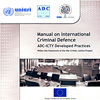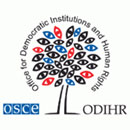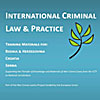As an ad hoc judicial body, the Tribunal was never intended to prosecute all persons alleged to be responsible for war crimes in the former Yugoslavia. Instead, it was always expected that the task of prosecuting the vast majority of the alleged perpetrators of these crimes would fall to judiciaries in the region. In line with this policy, since 2003, the Tribunal has been implementing its Completion Strategy.
It stopped issuing new indictments in 2004, and has transferred several cases concerning intermediate and lower-ranking accused to courts in the region. Evidentiary materials that have not resulted in an indictment before the Tribunal have also been transferred to national prosecutors. Additionally, today, local courts are conducting their own investigations and prosecutions of many alleged perpetrators not indicted by the ICTY.
Consequently, a key aspect of the Tribunal’s work has been the numerous initiatives it has undertaken over the years to support the work of legal professionals and institutions in the region that are handling war crimes cases.
For example, the transfer of expertise from the Tribunal to judiciaries in the region has contributed to the establishment of specialised organs for war crimes investigation and adjudication, and to the increased capacity of non-specialised courts to adjudicate war crimes cases. Across the region, the training of legal professionals and witness support staff by their ICTY counterparts has facilitated the implementation of international standards and best developed practices within the local judiciaries.
War Crimes Justice Project: transferring expertise to the local judiciaries
The components of the War Crimes Justice Project have been designed to meet the identified outstanding needs. Furthermore, assistance will be delivered in a manner identified by the national authorities as most conducive to them in order to support national ownership and provide sustainable benefits.
PROJECT COMPONENTS
Bolstering staffing capacity in key areas
The War Crimes Justice Project will sponsor the hiring of a limited number of additional support staff within domestic judicial institutions to bolster capacity in key areas such as analysis and witness support. This was identified by institutions within the national jurisdictions as a fundamental need for dealing effectively with complex war-crimes cases.
Developing curricula and materials
The War Crimes Justice Project will co-operate with several judicial-training institutions to develop curricula on international humanitarian law that is tailored to each jurisdiction’s legal framework, as well as various research and analysis tools. Corresponding training materials will also be developed. A training-of-trainers approach will be utilised where possible. A manual incorporating the most effective practices used by defence counsel before the ICTY will be produced to benefit defence lawyers in the region.
Professional development
The project includes a range of activities, such as peer-to-peer meetings and working visits, designed to facilitate the professional development of the legal professionals working on war-crimes cases in the region. Training will also be provided on the use of analytical tools and working with vulnerable witnesses. Advanced training will be provided on specific topics of international humanitarian law.
Access to the ICTY’s materials and expertise
The ICTY will produce transcripts of its key proceedings in Bosnian, Croatian and Serbian. This will drastically improve the ability of legal practitioners in the region to access and search through testimony given before the ICTY for the purpose of their domestic proceedings. The Tribunal’s Appeals Chamber Case Law Research Tool, which contains a compilation of summaries of the most important Appeals Chamber decisions, will also be translated into B/C/S. Specially tailored training will be provided to lawyers in the region in order to assist them in accessing the Tribunal's records.
War Crimes Justice Project: progress updates and calendar of activities
October 2011
Project Update Newsletter No. 5
25 October 2011
War Crimes Justice Project Closing Event to be held on Wednesday, 26 October, in Sarajevo
5 October 2011
Tribunal hosts a study visit for Judges and Prosecutors from Kosovo as part of the War Crimes Justice Project
20 September 2011
ICTY conducts ‘Training of Trainers’ Session in Bosnia and Herzegovina
13 September 2011
ICTY Delivers Priority Transcripts to Bosnia and Herzegovina and Serbia
1 September 2011
Press Release: First Set of Transcripts in Bosnian/Croatian/Serbian made available on Tribunal’s website
8 August 2011
ICTY Delivers New Set of Transcripts to Croatia and Bosnia and Herzegovina
30 June 2011
ICTY Delivers New Set of Transcripts to Bosnia and Herzegovina
27 June 2011
ICTY Judges Hold Peer-To-Peer Meeting with Judges from Former Yugoslavia
20 June 2011
ICTY Conducts Training Session for Macedonia Legal Professionals
16 June 2011
ICTY Conducts Training Session for Bosnian Legal Professionals
15 June 2011
ICTY Prosecutors Meet with Counterparts in Skopje
June 2011
Project Update Newsletter No. 4
31 May 2011
Appeals Chamber Case Law Research Tool Now Online in Local Languages
30 May 2011
ICTY Delivers New Set of Transcripts to Bosnia and Herzegovina and Serbia
19 May 2011
ICTY Conducts Training Session of Kosovo Legal Professionals
13 May 2011
ICTY Conducts Training Session of Croatian Legal Professionals
06 May 2011
ICTY Witness Support Providers Meet With Local Counterparts
05 May 2011
ICTY Conducts Training Session of Serbian Legal Professionals
03 May 2011
ICTY Conducts Training Session of Bosnian Legal Professionals
11 April 2011
ICTY Delivers New Set of Transcripts to Bosnia and Herzegovina and Serbia
28 March 2011
ICTY Conducts Training Session of Bosnian Legal Professionals
18 March 2011
ICTY Conducts Joint Advocacy Training in Bosnia and Herzegovina
18 March 2011
ICTY Conducts Training Session of Croatian Legal Professionals
March 2011
Project Update Newsletter No. 3
4 March 2011
Press Release: ICTY Delivers New Set of Transcripts to Bosnia and Herzegovina and Croatia
24 February 2011
Press Release: ICTY Conducts Training Session for Bosnian Legal Professionals
22 February 2011
Press Release: ICTY Holds Training Session for Montenegrin Legal Professional
21 January 2011
ICTY Delivers New Set of Transcripts to Bosnia and Herzegovina, Croatia and Serbia
17 January 2011
ICTY Judges Hold Peer-To-Peer Meeting with Judges from Former Yugoslavia
13 January 2011
Press Release: ICTY Conducts Training Session for Croatian Legal Professionals
January 2011
Project Update Newsletter No. 2
10 December 2010
Press Release: ICTY Judges to Hold Peer-To-Peer Meeting with Colleagues from Bosnia and Herzegovina
9 December 2010
Press Release: ICTY Delivers 1000 Pages of Transcripts in Local Languages to the Region
23 November 2010
Press Release: ICTY Conducts Training Session for Serbian Legal Professionals
12 November 2010
Press Release: ICTY Delivers First Transcripts in Local Languages to Bosnia and Herzegovina
- November 2010
Project Update Newsletter No. 1 - 5 November 2010
Press Release: ICTY Delivers First Transcripts in Local Languages to Serbia - 8 October 2010
Press Release: ICTY Delivers First Transcripts in Local Languages to Croatia - 28 September 2010
Press Release: ICTY Launches Joint War Crimes Project in the Region
Knowledge transfer and ICTY Developed Practices: Key Documents
"Supporting the Transition Process: Lessons Learned and Best Practices in Knowledge Transfer"

This report is the product of a nine-month needs assessment conducted jointly by the ICTY, Organization for Security and Cooperation in Europe’s Office for Democratic Institutions and Human Rights (OSCE/ODIHR) and the United Nations Interregional Crime and Justice Research Institute (UNICRI). It identifies the outstanding needs of judiciaries in the former Yugoslavia as well as the effectiveness of capacity building efforts conducted so far.
ICTY Manual on Developed Practices

This book provides a comprehensive description of the operating practices that have developed in the Tribunal since its inception. It covers the full scope of the Tribunal’s work, ranging from investigations to the enforcement of sentences, while also discussing judgement drafting and judicial support services. It is one of the key tools produced by the Tribunal, in cooperation with UNICRI, to preserve its legacy. It was launched in May 2009, in English as well as in BCS.
Manual on International Criminal Defence
 The ADC-ICTY Manual was produced as part of the War Crimes Justice Project, an initiative aimed at facilitating the transfer of knowledge and materials to legal professionals in the former Yugoslavia. The manual provides an overview of some of the most effective and innovative practices developed by defence counsel representing accused before the ICTY.
The ADC-ICTY Manual was produced as part of the War Crimes Justice Project, an initiative aimed at facilitating the transfer of knowledge and materials to legal professionals in the former Yugoslavia. The manual provides an overview of some of the most effective and innovative practices developed by defence counsel representing accused before the ICTY.
It is intended as a reference tool for defence counsel defending war crimes cases in the region. It deals with several problematic issues, such as how to use and challenge ICTY-generated evidence and how to conduct an effective plea bargaining.
International Criminal Law and Practice – ICLS Training Materials
As part of the War Crimes Justice Project, training materials were developed by International Criminal Law Services (ICLS), an independent organisation of experts in international criminal law and related humanitarian law.
All modules can be accessed directly from the ICLS website.
Videos
Video on the War Crimes Justice Project
|
|
|
An interview with Ivan Jovanovic of the OSCE Mission to Serbia
|
|
ICTY Partners in Capacity Building
 |
 |
 |
| This project is funded by the European Union |
The ability of local judiciaries to continue adjudicating war crimes cases in accordance with the highest international standards after the Tribunal closes its doors is considered a cornerstone of the Tribunal’s legacy.
Within this context, the ICTY continues to provide assistance to regional war crimes prosecutors, judges, and other legal professionals. The Tribunal has entered into partnerships with the Organisation for Security and Cooperation in Europe’s Office for Democratic Institutions and Human Rights (OSCE/ODIHR) and the UN Interregional Crime and Justice Research Institute (UNICRI). Together with these partners, the Tribunal has been implementing various projects to ensure the effective transfer of its institutional knowledge and specialised skills to national judiciaries.




